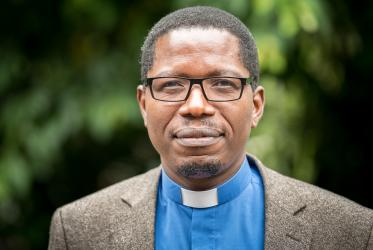Displaying 1 - 17 of 17
Rev. Kenneth Mtata reflects on journey of transition in Zimbabwe
20 September 2018
#WCC70: Churches as “freedom agents”
12 February 2018
Zambia: “On HIV, we do not compete. We work together.”
20 October 2016
Kenya: Voice of faith communities crucial in overcoming HIV
14 October 2016
Person with disability shares reflection on AIDS conference
10 December 2015
Land rights focus of panel discussion
17 November 2015
Overcoming discrimination to address HIV in Zimbabwe
11 November 2015
Churches have a special role to play in HIV response
18 November 2014










